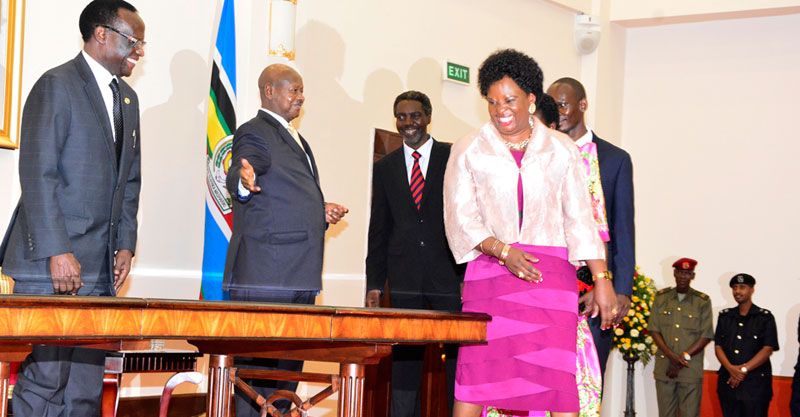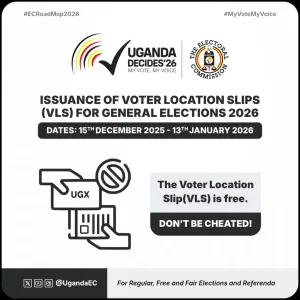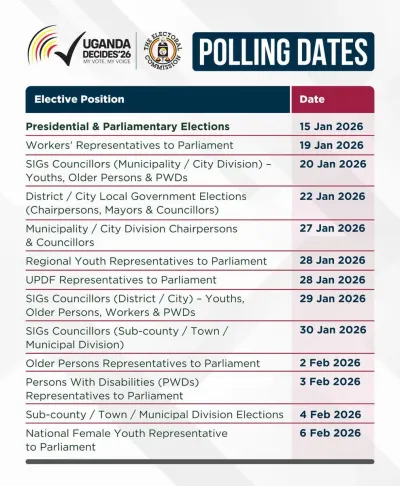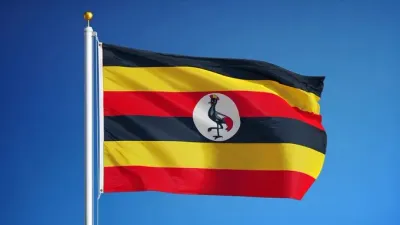

President Museveni (C) after witnessing the swearing in of the new Lands minister and a UPC member Betty Amongi
President Yoweri Museveni is desperate to deliver on his ambitious pledge to move Uganda into a middle income country by 2021.
In pursuit of his political ambitions as well as fulfilling his party’s manifesto, Museveni has issued a notice to his new cabinet to work extra hard in order to deliver his ambitious project.
He rallied his new cabinet on Tuesday to join the train that he vows is going to deliver the middle income status to Uganda.
He was officiating at the swearing in of a total of 76 new ministers. Four ministers didn’t turn up for undisclosed reasons.
Museveni while bidding farewell to his previous team at Entebbe last month, he said they nearly delivered the middle income status.
“You have left us with a lot of invaluable knowledge on which the incoming cabinet will build to deliver the middle income status, finally,” Museveni told his anxious ministers unaware of whether they would bounce back.
While he heaped praises on his new cabinet lineup as one with the tricks to deliver on his cherished project, the president hastened to recognize that it will only arrive with a lot of hard work.
Accordingly, Museveni strongly appealed to his new ministers to assertively execute their duties so that all expectations are met.
Root for investments
He further rallied his ministers to bellicosely root for investments, saying deep pocketed investors are the ones who are going to build industries, pay meaningful taxes and provide employment to the army of unemployed youth for the middle income status to come to fruition..
“We should aggressively look for investments. Development can only be achieved with serious investments and that is going to be our responsibility.”
While he is known to be a micromanager who wants all major decisions to be left to him, Museveni warned the ministers to avoid delays in decision making to speed up growth.
“There are two things we should do away with. There shouldn’t be any delay in decision making… especially those involving investments”
Time will tell if Museveni will leave the Ministers alone do their work without undue interference such as cutting their budgets.
Opening big investments in the country is a cumbersome exercise. The investors spend unnecessary time appealing for help from different sectors from the Office of the President, Ministry of Trade, Uganda Investments Authority, Uganda National Bureau of Standards, National Environmental Management Authority, Kampala Capital City Authority and others.
The different sectors have to separately sit at different stages and make decisions before any investment starts.
The President also warned on corruption that has become the order of the day in most government ministries and departments.
“There should be zero corruption in this government. Corruption or serving personal interests hampers development.”
Though Museveni’s pledge is most welcome, critics will quickly label his latest talk as another empty rhetoric by a president seeking to appease anti-graft agencies, the development partners as well as Ugandans.
The president has been talking tough about corruption, but doing little to take the bull by the horns. Case in point are the many commissions of inquiries that have been carried out on the vice and at a colossal cost to the taxpayers, but which have remained on the government shelves unimplemented for decades.
Just recently, the president received the IGG report on the rot in the roads sector (UNRA). While he vowed to prosecute the culprits, Ugandans are yet to witness the actual implementation of the president’s threats.
Back in the day when Museveni came under pressure to prosecute the corrupt, he retorted that they are so powerful and can cause problems to the entire country in case one dared to mess with them.
At another time, the president said the corrupt were putting up big investments that were a spring board to his cherished middle class status.
It should also be recalled that Museveni has on many occasions turned into a powerful advocate for the people who alleged to be corrupt such as in case of former Prime Minister John Patrick Amama Mbabazi.
Another example is when the President pledged to meet the legal costs in the appeal of former minister Capt. Mike Mukula who had been jailed for messing up with the money for treating HIV patients.
As a matter of fact, critics say Museveni reserves the charge of corruption for colleagues he has fallen out with and people he assumes to be enemies of the state.
To this end, they point out former vice president Prof Gilbert Bukenya who was scandalously charged with ‘ eating’ funds for organizing CHOGM in 2007 for supposedly harboring presidential ambitions, yet many other would be culprits were left out.
During the swearing in of his cabinet, Museveni also stressed that the cost of doing business in the country should be drastically reduced to encourage more investments in the country and also consolidate the existing ones.
We wait to see whether the president will follow up his talk with a reduction in oil and electricity tariffs which are the oil that runs businesses, but which his government saw no reason to cut down during the budgeting process.














Sunrise reporter
Leave a Comment
Your email address will not be published.